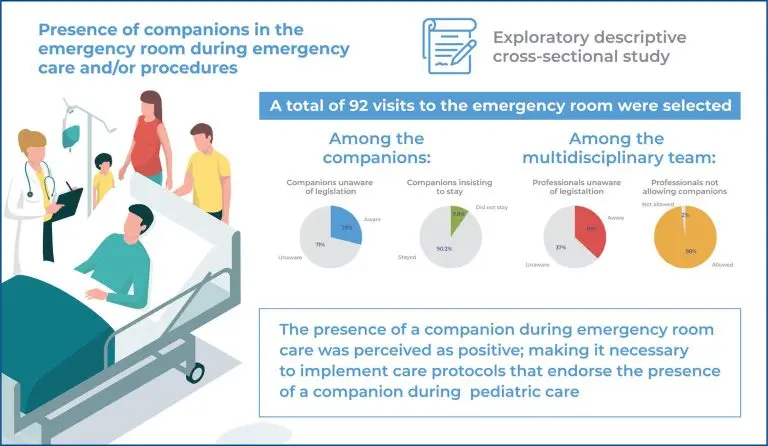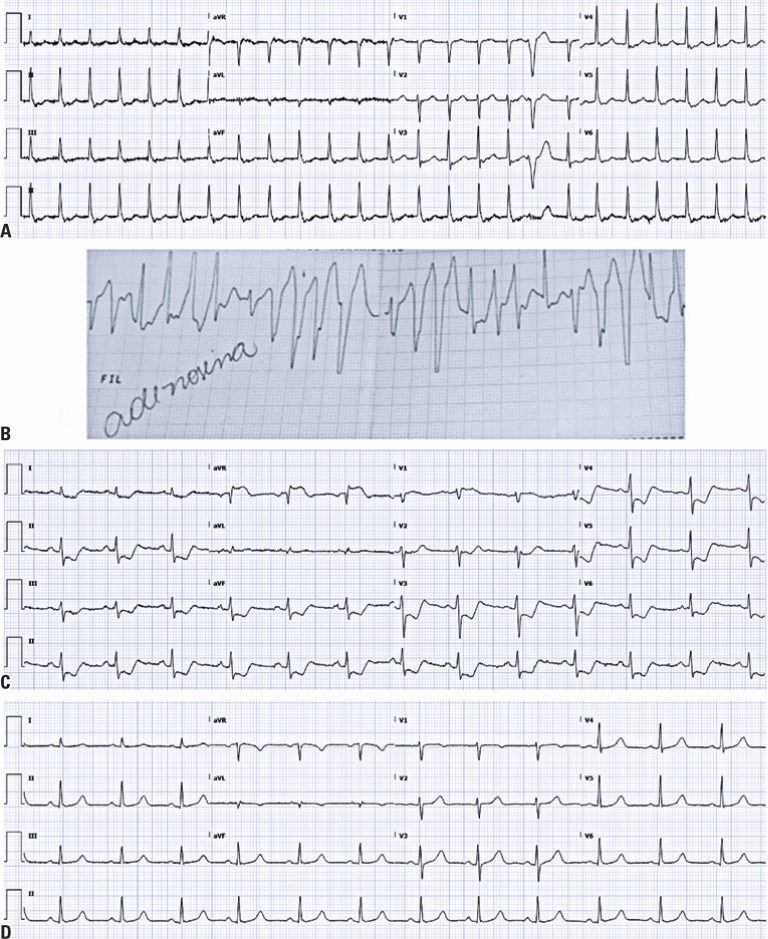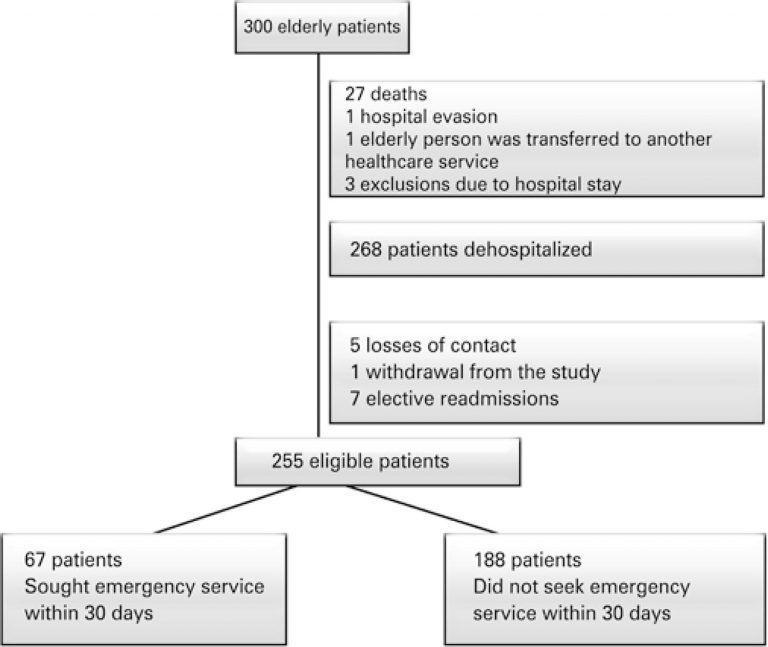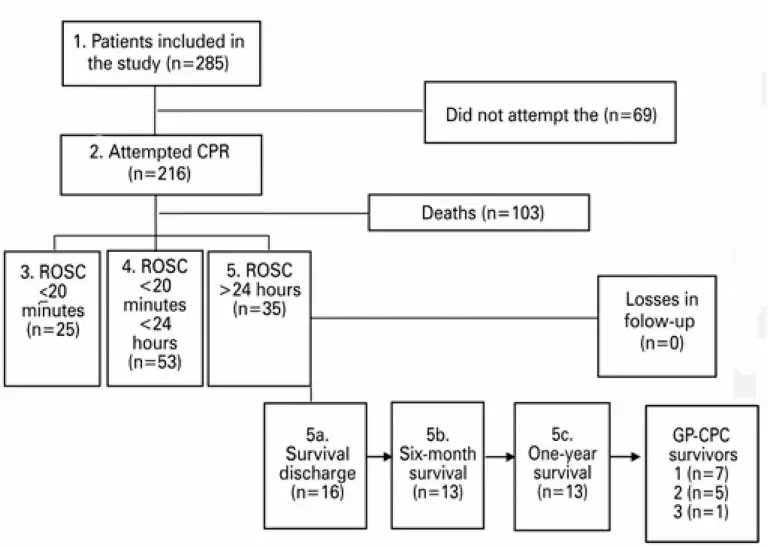10/Jun/2025
Perception of the multidisciplinary team and the patient’s family companion regarding their presence during emergency room care
einstein (São Paulo). 10/Jun/2025;23:eAO0871.
View Article10/Jun/2025
Perception of the multidisciplinary team and the patient’s family companion regarding their presence during emergency room care
DOI: 10.31744/einstein_journal/2025AO0871
Highlights ■ Family presence improves communication and patient comfort during pediatric emergency room care. ■ Overall, 90.2% of companions stayed during care, despite 71% being unaware of the legislation. ■ Of the professionals, 96% allowed companions, with 87% citing comfort for patients. ■ This study supports creating clear protocols for family inclusion during emergencies. ABSTRACT Objective: To evaluate the perceptions of family companions and the professional team regarding the presence of a family member during emergency and urgent care at […]
Keywords: Adolescent; Cardiopulmonary resuscitation; Child; Emergency service, hospital; Hospital, pediatric; Intubation; Intubation, intratracheal; Patient care team; Surveys and questionnaires
22/Mar/2024
Torsades de pointes and myocardial infarction following reversal of supraventricular tachycardia with adenosine: a case report
DOI: 10.31744/einstein_journal/2024RC0522
ABSTRACT Adenosine is an antiarrhythmic drug that slows conduction through the atrioventricular node and acts as a coronary blood vessel dilator. This case report highlights two unusual life-threatening events following the use of adenosine to revert supraventricular tachycardia in a structurally normal heart: non-sustained polymorphic ventricular tachycardia and myocardial infarction. A 46-year-old woman presented to the emergency department with a two-hour history of palpitations and was diagnosed with supraventricular tachycardia. Vagal maneuvers were ineffective, and after intravenous adenosine administration, the […]
Keywords: Adenosine; Emergency service, hospital; Myocardial infarction; Tachycardia, supraventricular; Torsades de pointes
18/Oct/2019
Emergency department visits of older adults within 30 days of discharge: analysis from the pharmacotherapy perspective
DOI: 10.31744/einstein_journal/2020AO4871
ABSTRACT Objective To analyze, from the pharmacotherapy perspective, the factors associated to visits of older adults to the emergency department within 30 days after discharge. Methods A cross-sectional study carried out in a general public hospital with older adults. Emergency department visit was defined as the stay of the older adult in this service for up to 24 hours. The complexity of drug therapy was determined using the Medication Regimen Complexity Index. Potentially inappropriate drugs for use in older adults […]
Keywords: Aged; Drug therapy; Emergency service, hospital
01/Oct/2017
Do not attempt resuscitation orders at the emergency department of a teaching hospital
einstein (São Paulo). 01/Oct/2017;15(4):409-14.
View Article01/Oct/2017
Do not attempt resuscitation orders at the emergency department of a teaching hospital
DOI: 10.1590/S1679-45082017AO3999
ABSTRACT Objective: To identify factors associated with not attempting resuscitation. Methods: A cross-sectional study conducted at the emergency department of a teaching hospital. The sample consisted of 285 patients; in that, 216 were submitted to cardiopulmonary resuscitation and 69 were not. The data were collected by means of the in-hospital Utstein Style. To compare resuscitation attempts with variables of interest we used the χ2 test, likelihood ratio, Fisher exact test, and analysis of variance (p
Keywords: Cardiopulmonary resuscitation/ethics; Decision making/ethics; Emergency service, hospital; Heart arrest; Resuscitation orders
01/Jan/2017
Blood pressure documentation in the emergency department
DOI: 10.1590/S1679-45082017AO3737
ABSTRACT Objective To analyze the frequency of blood pressure documentation performed by nursing professionals in an emergency department. Methods This is a cross-sectional, observational, descriptive, and analytical study, which included medical records of adult patients admitted to the observation ward of an emergency department, between March and May 2014. Data were obtained through a collection instrument divided into three parts: patient identification, triage data, and blood pressure documentation. For statistical analysis, Pearson’s correlation coefficient was used, with a significance level […]
Keywords: Blood pressure determination; Emergency service, hospital; Monitoring, physiologic; Nursing records
01/Apr/2010
Adverse drug events leading to emergency department visits in elderly: the role of inappropriate prescription
DOI: 10.1590/S1679-45082010AO1473
ABSTRACT Objective: Adverse drug reactions are more incident among the elderly and are frequently associated to inappropriate prescription for this group. The objective of the current study was to investigate the incidence and the characteristics of emergency department visits, related to inappropriate prescription, at the Hospital Israelita Albert Einstein. Methods: Patients aged 60 years or older, admitted to the emergency department at Unidade Avançada Ibirapuera of Hospital Israelita Albert Einstein, were included in the study. Potentially inappropriate medication for the […]
Keywords: Aged; Drug prescriptions; Emergency service, hospital; Pharmaceutical preparations/administration & dosage; Pharmaceutical preparations/adverse effects






